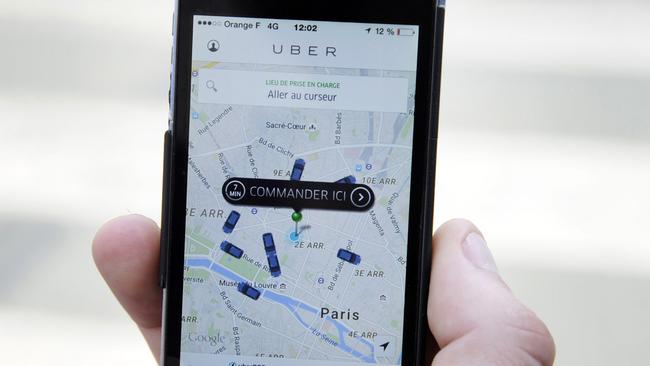Uber is haemorrhaging money as it faces down some stiff competition
UBER’S race to expand is coming at a high cost for the ride-share upstart. And its facing some stiff competition from a powerful, cashed-up rival.

UBER’S race to expand is coming at a high cost.
The fast-growing ride-share service recorded $608 million in operating losses on $537 million in revenue, according to a bond prospectus obtained by Bloomberg News.
The term sheet, which making the rounds as Uber tries to sell $1.55 billion in convertible bonds, doesn’t spell out the time period for those results, Bloomberg said.
An Uber spokeswoman told Bloomberg that the “old” numbers don’t reflect the company’s current business, yet she doesn’t explain why they would be referenced in this latest bond offering if that’s the case.
The company, led by CEO Travis Kalanick, has been notoriously tight-lipped about its finances. Uber is widely expected to go public at some point with its valuation pegged at a whopping $51 billion.
Meanwhile, the company is following a number of routes to raise cash. It is also negotiating a $2.5 billion credit line with banks. Earlier this year, it raised $2 billion in convertible debt, Bloomberg said.
Of course, not everyone is happy with Uber’s relentless drive. In New York, the City Council is holding a hearing on Tuesday that on whether to put a temporary cap on the number of vehicles that popular car services like Uber and Lyft are allowed to put on the road.
After riots on the streets of Paris and authorities in Australia setting Uber in its sights, the taxi disrupter is finding challenges at every turn.
In China, Uber is facing some stiff competition from rival ride-share company Didi Kuaidi, as both jostle for dominance.
Didi Kuaidi told shareholders on Friday it had three times the number of daily private car trips than Uber Technologies Inc just weeks after Uber boasted of similar successes in a letter to its own investors, Reuters reports.
Didi Kuaidi is backed by Alibaba Group Holdings Ltd and Tencent Holdings Ltd, China’s two largest internet companies and aims to serve 30 million passengers a day there.



